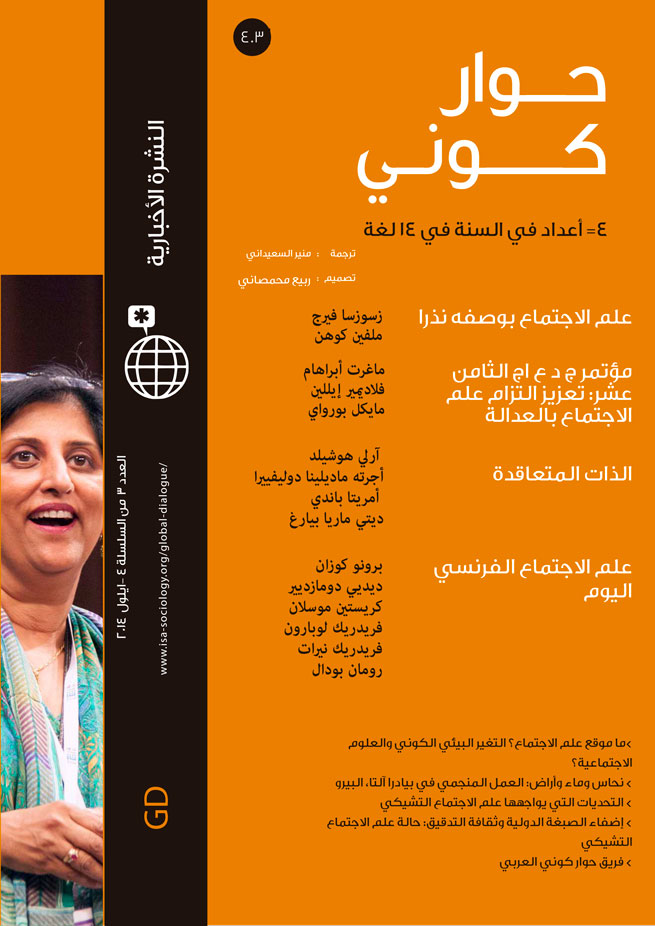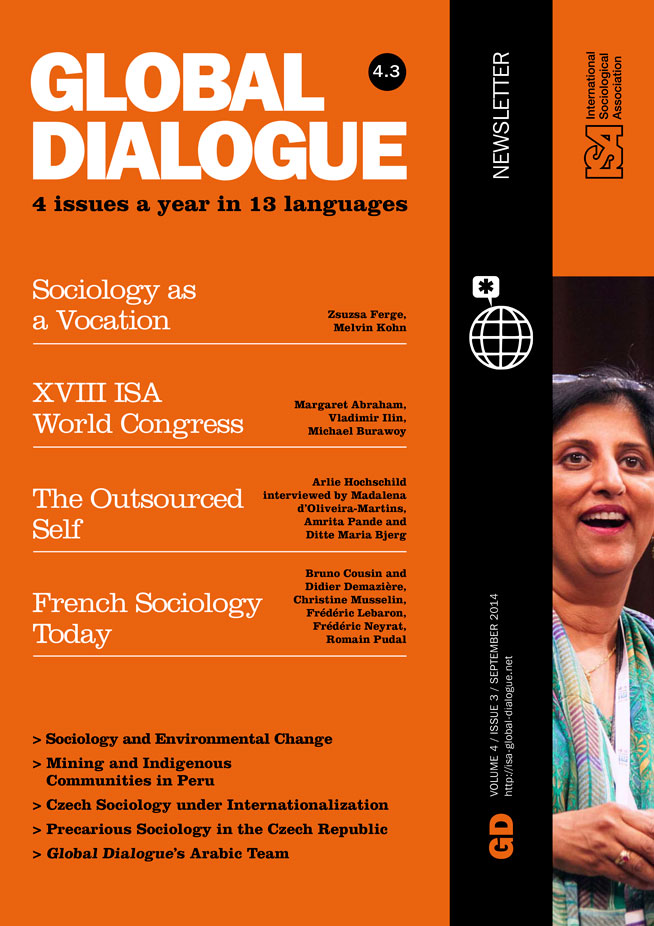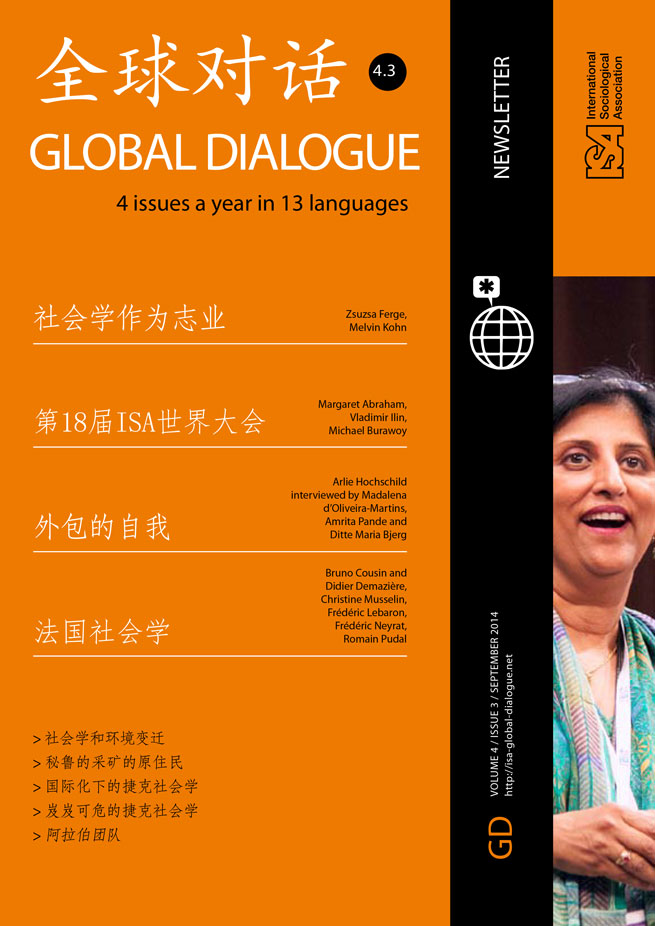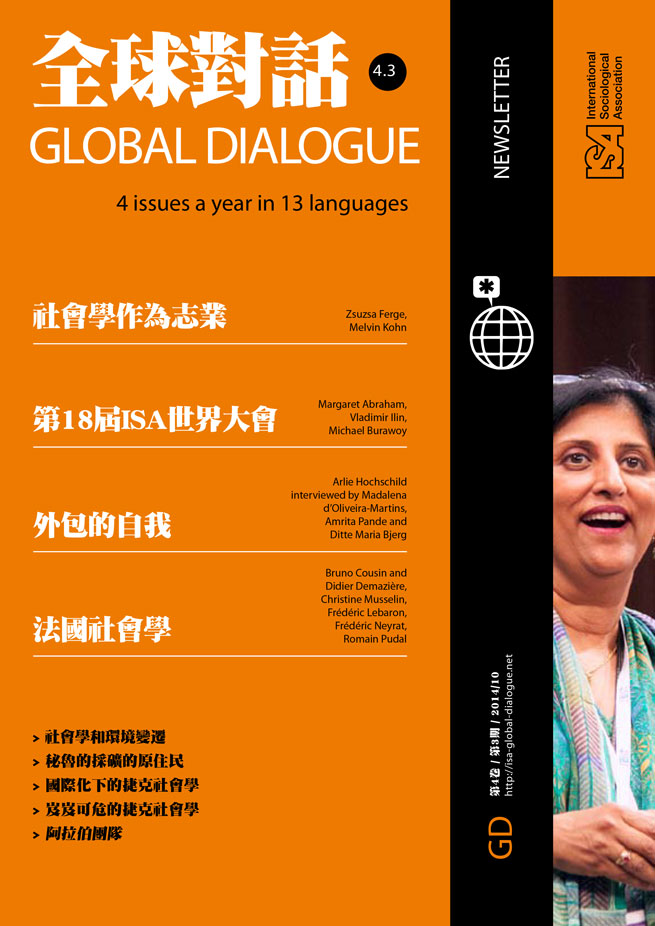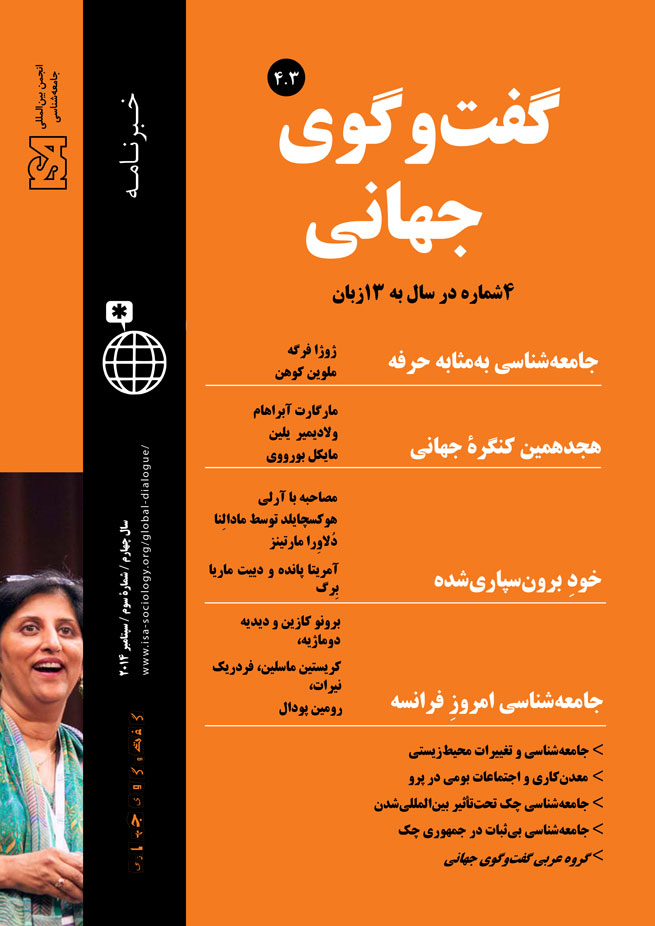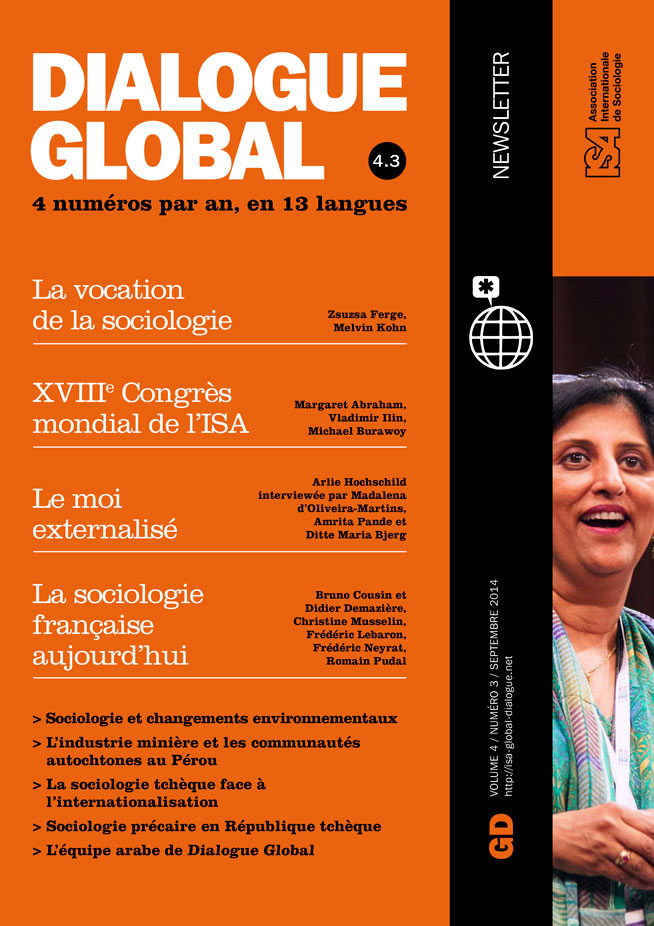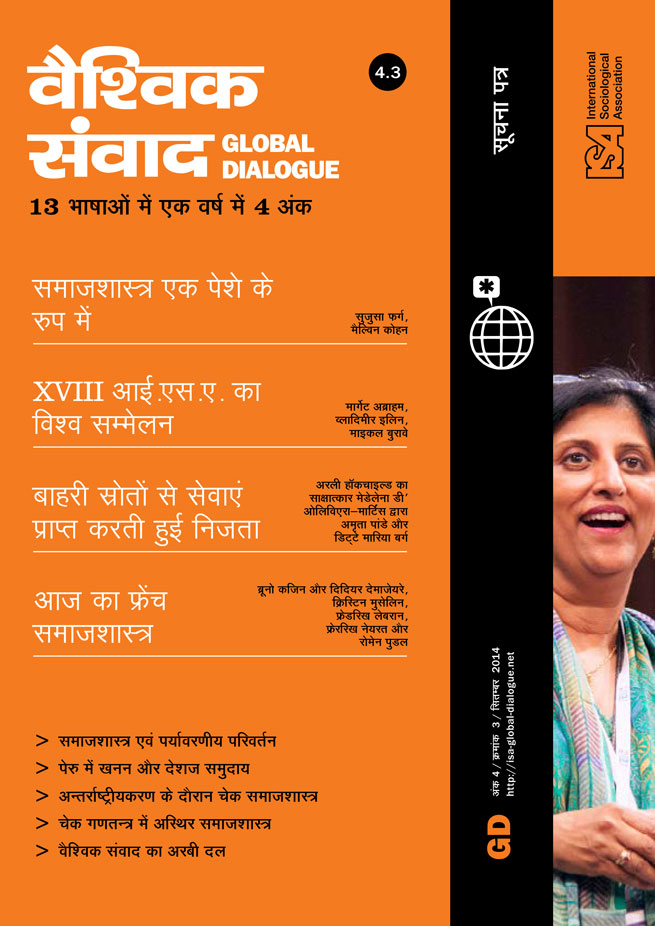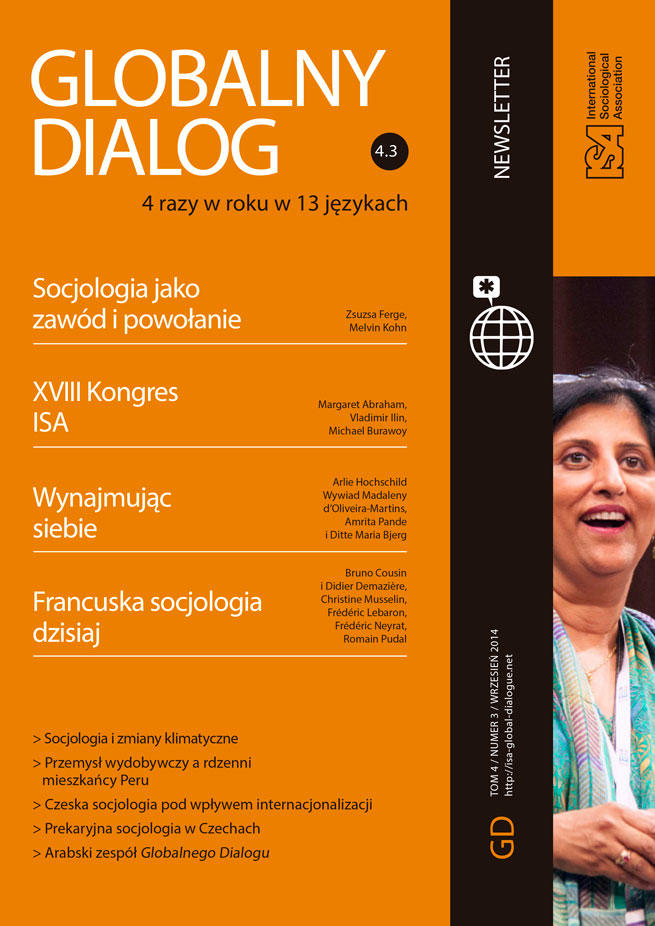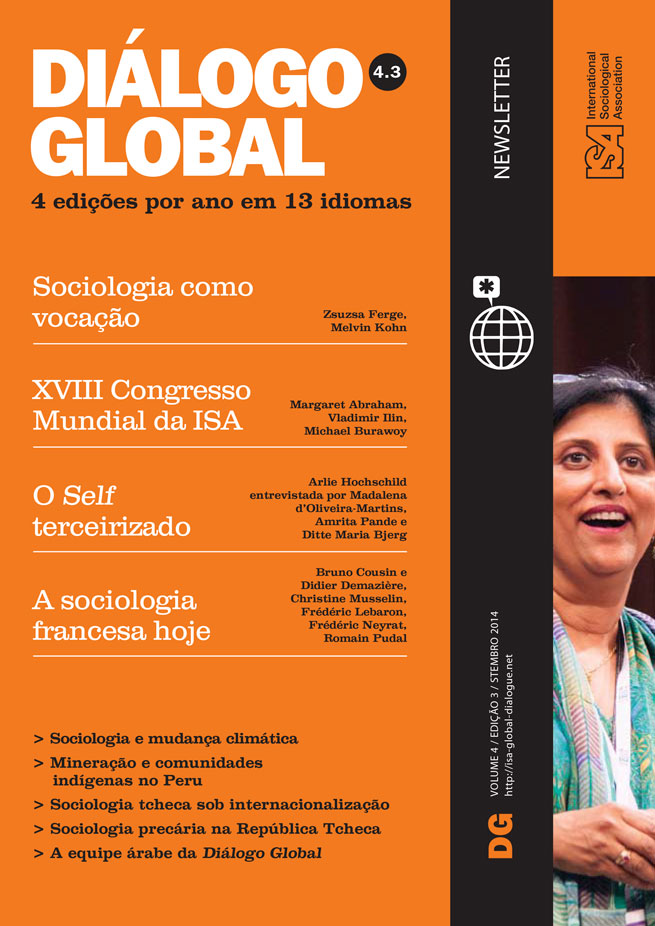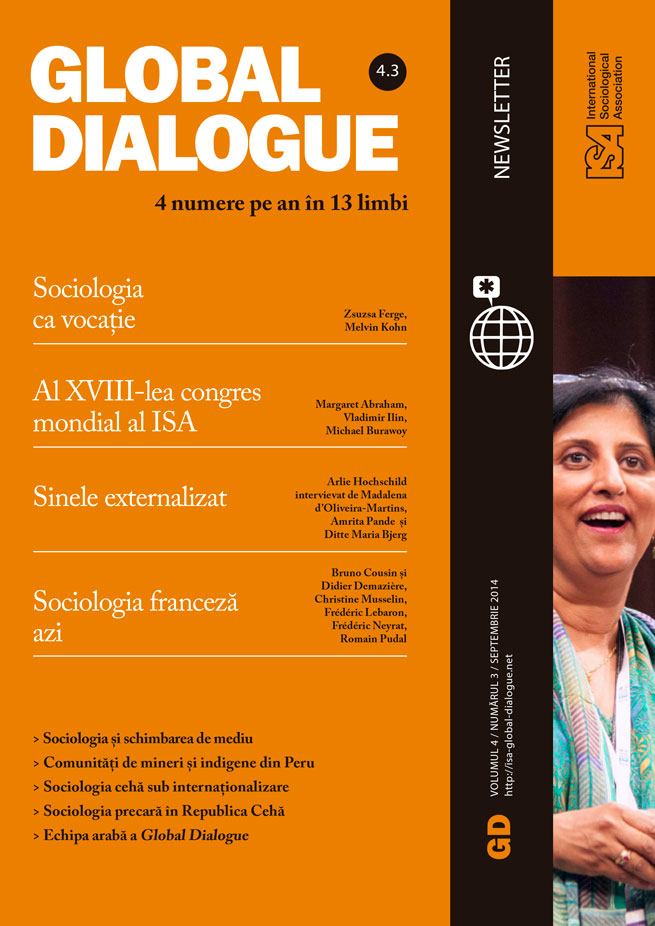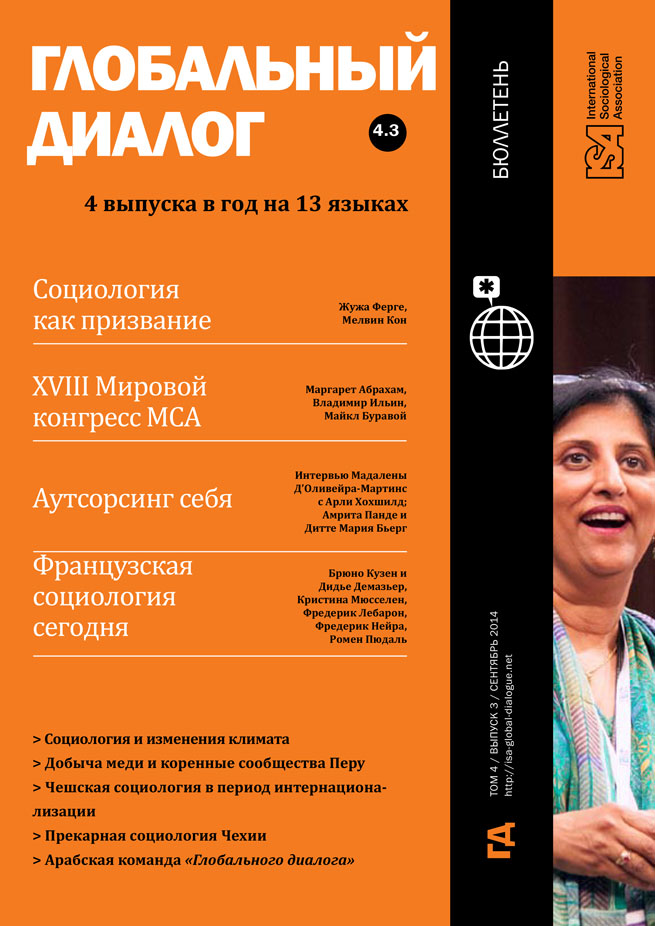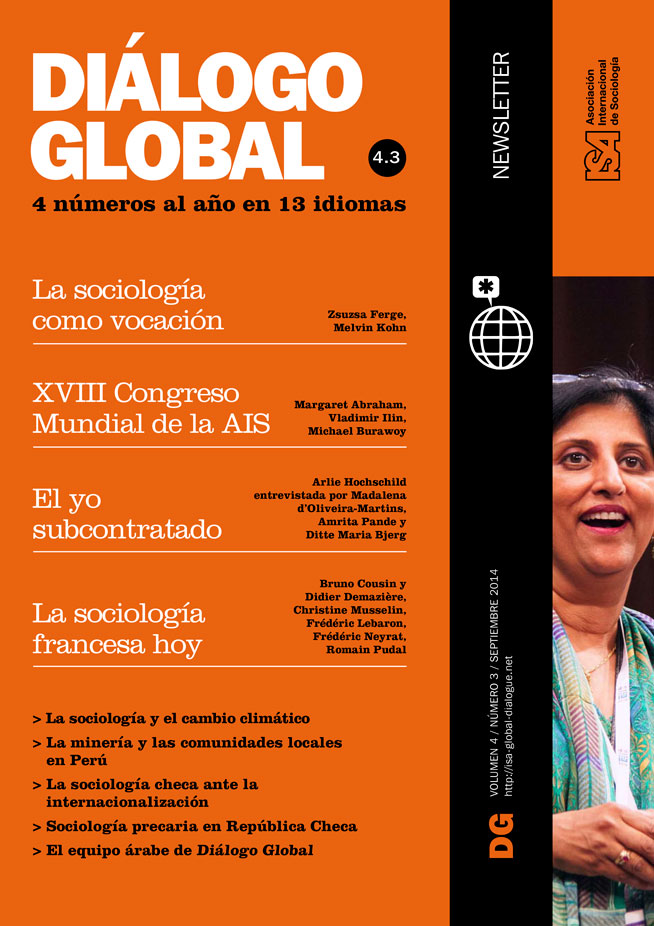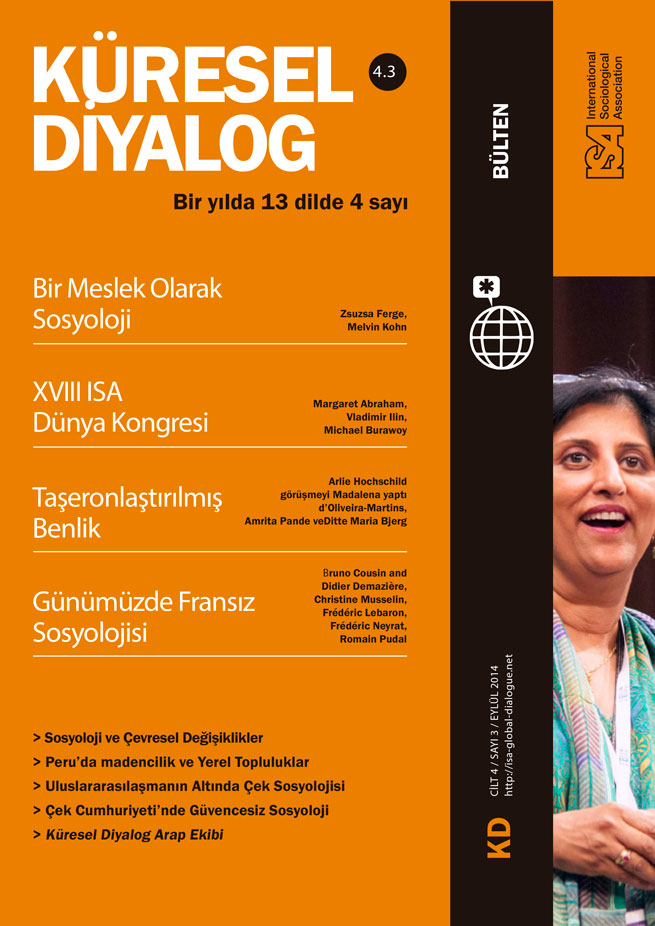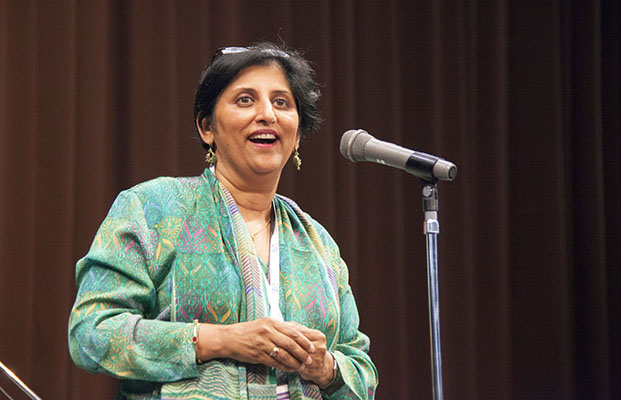Read more about XVIII ISA Congress
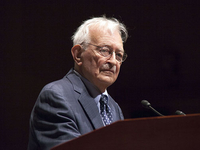
Immanuel Wallerstein receives ISA’s Excellence Award
by Michael Burawoy
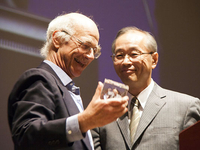
Reflections on Yokohama
by Vladimir Ilin
September 08, 2014
This July, 6,087 sociologists and social scientists from 95 countries met in Yokohama, Japan, for the ISA’s XVIII World Congress of Sociology. For a hugely successful event, our heartiest congratulations and thanks to the Japanese Local Organizing Committee, superbly chaired by Koichi Hasegawa; to the ISA Program Committee, chaired by Raquel Sosa and our ISA Vice-Presidents, Tina Uys, Robert van Krieken, Jennifer Platt; and to Program Coordinators of the Research Committees, Working Groups and Thematic Groups. Very special thanks, also, to ISA Executive Secretary, Izabela Barlinska, whose consummate professional skills underlie the congress’ organization, and to Confex, our professional conference management team.
Most importantly, the Congress’ unqualified success owes much to the leadership and dynamism of ISA President Michael Burawoy, who conceived the Congress theme of “Facing an Unequal World: Challenges for Global Sociology,” and who has unfailingly drawn attention to the inequalities confronted by civil society and to the threat to our discipline posed by increased privatization and commodification. We are deeply indebted to Michael for his remarkable vision in creating an active sociological community through Global Dialogue and his efforts to use electronic media to reach beyond the discipline’s academic borders, contributing to sociology and to social change by building a global sociological constituency.
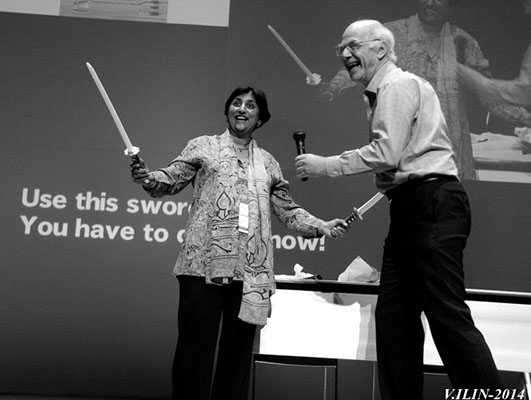
We now have the opportunity to further strengthen our discipline and the organization, with the support of our newly elected Executive Committee and a great team of Vice-Presidents: Markus Schulz (Research Council), Sari Hanafi (National Associations), Vineeta Sinha (Publications) and Benjamín Tejerina (Finance and Membership).
Our association needs to continuously respond to the challenges of our changing, often tumultuous world. More than ever before, we confront complex global concerns, compelling us to draw upon sociology as a discipline to dialogue within and across societies, however disparate; and to address the social, economic, and political challenges, to collaboratively shape a more just world in the 21st century. As I see it, the ISA’s core mission is not only to analyze and explain the social human world, but also to imagine solutions and directions that will help to create a more humane future for us all.
As the new President of the ISA, I have identified some key priorities. Despite considerable progress, we must continue to develop the ISA’s global character. The ISA’s first organizational goal is to represent sociologists everywhere “regardless of their school of thought or ideological opinion,” yet more than half the world’s countries are not represented in the organization. A North and West-centric slant still dominates our membership and research agendas, restricting the intellectual engagement and cross-pollination of ideas so central to our mission. I hope to considerably increase the ISA membership to make our organization truly global, representing all peoples and shades of sociological thought. With the support of the Research Committees and National Associations, we will consider realistic avenues to building institutional capacity to support sociologists who encounter multiple barriers – economic and political – impeding participation in global exchanges. Increasing opportunities for emerging and early career sociologists is critical to ensuring the association’s vitality. This must entail strengthening our financial base, so that we can ensure more inclusive participation without jeopardizing the ISA’s fiscal viability – which will be possible only with the support and cooperation of our members.
Significantly, the ISA’s manifesto stresses “institutional and personal contacts between sociological and other social scientists throughout the world.” Sustained dialogue across disciplines is critical for a fuller appreciation of humanity, its nuances and differences. I hope we can embrace, extend and re-define the interdisciplinarity at the historical roots of Sociology. Just as the world needs constant inquiry by sociologists, so also do we need active interaction with other social scientists to remain relevant. The ISA’s conferences and workshops could benefit from including leading opinion makers from other fields. I hope to work towards facilitating collaborative inquiry, enhancing productive exchanges in our global interactions.
Of course, the ISA’s ultimate goal is “to advance sociological knowledge throughout the world.” This means engaging in a systematic, skeptical and critical analysis of our human social world and thereby contributing to making it a better place. Restricting this grand vision to a narrow focus on the purely academic interests of an elite community of sociologists would entail a highly constricted reading of the ISA’s mission. We need critical analysis but also action and intervention, including working with non-governmental agencies for progressive social justice and social change. The ISA should certainly devote resources and time to research and training, develop strong theoretical frameworks and rigorous methodology, but it should also embrace a sociology that grapples with the problems of the real world – a world brutalized by genocide, tyranny, terrorism, xenophobia, racial discrimination, fundamentalism, gender injustice, corruption and environmental degradation, problems which have engendered poverty, lack of freedom, vast inequalities in wealth, and social exclusion. As ISA President I shall work for a sociology that not only analyzes the major problems of our social worlds, but is pro-active in pointing toward new directions for progressive social change. I shall endeavor to further enhance the role of the ISA as an international body pro-actively engaged with the contemporary world.
As a feminist sociologist, who has learned much from the global community of feminist scholars and community activists, I am especially concerned about the gendered violence and discrimination, which pervade societies worldwide. While it is particularly severe on women and girls, gendered violence has deleterious implications for families, communities and society at large; systematic targeting of women is characteristic of modern conflicts. The problem of violence against women must be an important part of the ISA’s broader agenda on social justice. I plan to initiate an ISA presidential global project to explore and coordinate a global network of sociologists and stakeholders, who will draw upon local, national, regional and global experiences to provide solutions for mitigating gendered and intersectional violence.
What we learn of our complex, conflict-ridden world cannot be confined solely to journals and conference room spaces. With your help, I intend to disseminate ISA’s work on contemporary social issues to the wider world, to translate specialized sociological knowledge into popular concepts that the average citizen can understand, relate to and be inspired by.
Our electronic media will be used to disseminate our research, promote exchanges and dialogue, and share sociological analyses. My presidential plan includes an ISA initiative to electronically map sociologists across the world as a resource for the global community, and strengthen sociologists’ use of social media to draw attention to complex contexts and concerns.
The ISA is an organization that wants to make a difference, and our membership brings together a rich and diverse range of sociological perspectives and methodological skills. Having outlined my priorities for the ISA, my remit is now to translate intent into meaningful action –with your constructive critique, cooperation and collaboration.
Margaret Abraham, Hofstra University, USA and ISA President, 2014-2018 <Margaret.Abraham@Hofstra.edu>
This issue is not available yet in this language.
Request to be notified when the issue is available in your language.
If you prefer, you can access previous issues available in your language:
